By Sarah Mourad, The Cairo Post
After thousands of years of civilization, Egyptian culture still refuses those whose brain hurts. Abbasiya Mental Hospital and Asylum in Cairo – the largest mental institution in the Middle East – and its patients are never given the proper attention and are still a stigma that society fears, looks down on, and does not understand.
Psychiatric patients and institutes in general remain taboo in Egypt. Never the proper concern or focus is given to such patients or even institutes.
Perhaps the current political situation in the country precludes this from happening. But the truth is, this has been the case for decades. Many decades.
Egyptian society still fears insanity and “crazies,” despite it being all around. It’s a disgrace being a mentally ill patient, or associated to someone who is. Even more amazingly, being part of an institution that serves them.
Whenever the phrase “Abbasiya” is heard, what comes to the mind of Egyptians is madness, right away. And madness is always associated with danger and criminality. Perhaps of the reasons why in 2010, the buildings of the historic hospital were threatened to be torn down and be replaced by a mall or some business venture – thankfully, this did not happen.
Largest Mental Hospital in the Middle East
Not many are aware that Abbasiya Mental Hospital, which is officially named as a historic monument in Egypt, goes back to 130 years – precisely in 1883. It is the biggest -68 feddans (approximately 70 acres, or 27 hectares)- and most important mental institution in Egypt and the Middle East.
“You can never find as many sections and departments in a health institution not just all over Egypt, but the entire Middle East,” said Dr. Soraya Abdel Fattah, professor at the Faculty of Nursing, Ain Shams University. Such a variety of patients and medical fields in one place makes it a crucial academic and scientific edifice, she added.
“There are eighteen mental hospitals across Egypt connected to Abbasiya. One in Alexandria, another in Helwan, in Khanka, et cetera, but the mother of them all is Abbasiya,” said Mai Abdel Geleel, the hospital’s media affairs officer.
There are approximately 1,500 patients around the hospital every month, in the various sections and departments. Most are given treatment completely for free. Recently, a new section was created where patients pay for better facilities.
There is a section for people who have committed crimes and are suspected to be mentally ill. Once they are actually diagnosed, they move to a department called “eight west.”
There are isolated sections for patients suffering tuberculosis, and another for those who suffer other physical illnesses such as diabetes and high blood pressure, as they require specialized care.
The most common cases in both the men’s and women’s sections, the largest in the hospital, are schizophrenia and depression. There, patients are classified according to age and gender, regardless of the exact type of illness.
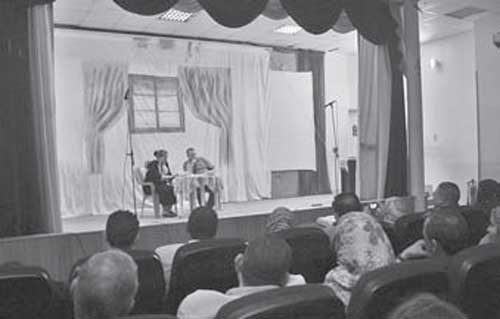
The hospital considers rehabilitation to be the most important stage for any patient. Patients are made to express their feelings and frustrations through activities such as sewing workshops and a theater where patients perform plays and musical concerts.
“They get paid for the things they have created as a way to encourage them,” Abdel Geleel said. “We also arrange trips outside the asylum for them, so they will not feel isolated and detached from the world outside,” she added.
Treating Children
Of the hospital’s major sections is the “childhood clinic.” The clinic sees cases ranging from autism and attention deficit hyperactivity disorder (ADHD) to mental retardation.
“It’s an out-patient clinic, around 40 to 50 new cases finish treatment monthly, and around 400-450 children between new cases and follow-ups are treated yearly,” said Dr. Hend Adel, a child psychiatrist at the hospital.
The youngest patient ever treated was a year and a half old.
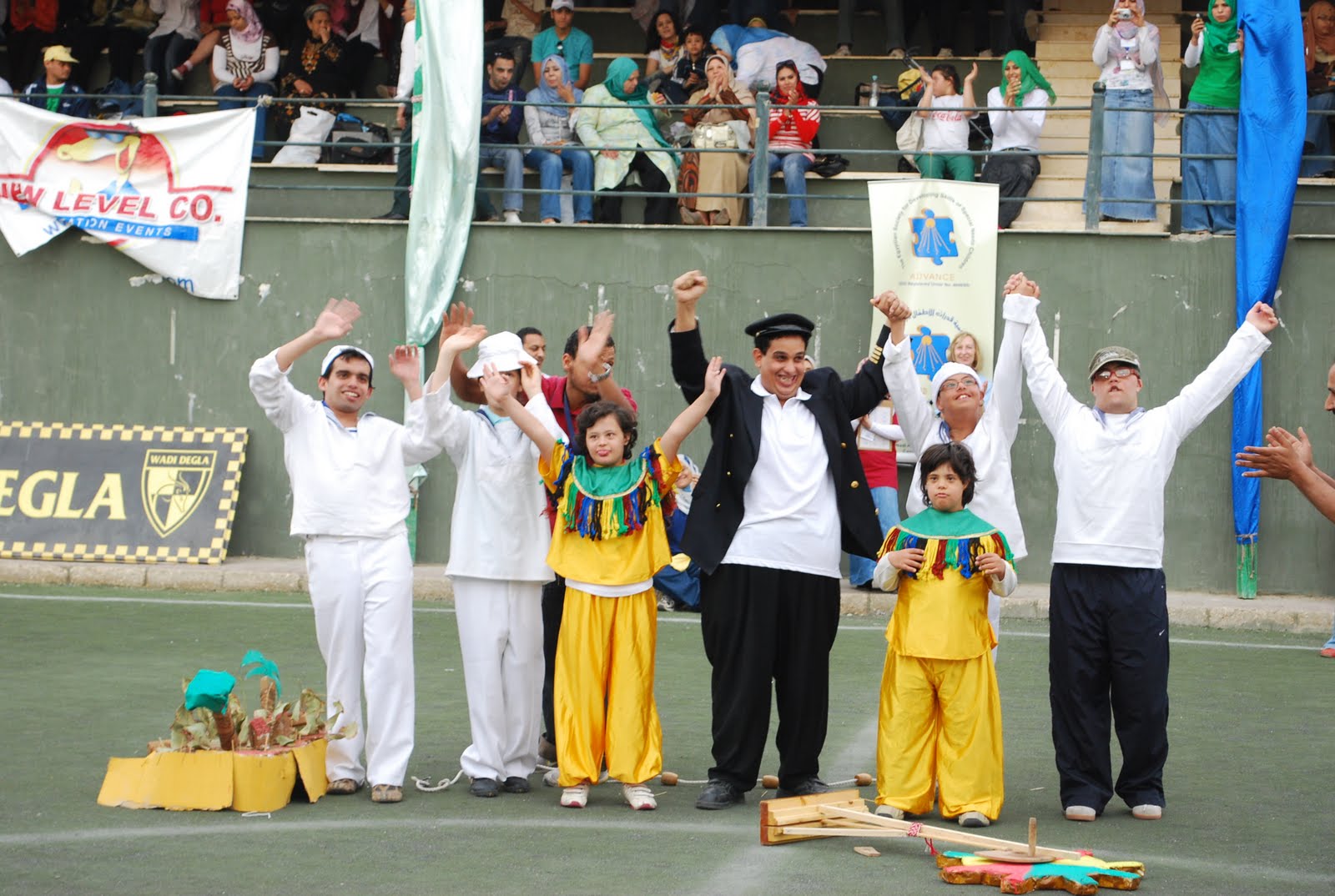
Adel explained that recently the hospital opened a day care center for autistic children in April, 2013, the only such governmental facility in Egypt. There is still a lot to be done in the autism center because, as Adel explained, it requires regular one-on-one doctor-patient treatment, “and the number of psychiatrists available, specifically child psychiatrists, are not many in Egypt.”
The hospital also deals with ‘conduct disorders,’ children who consistently break the rules and lie; oppositional defiant disorder (ODD), children who always say ‘no’ and are excessively stubborn; and other disruptive behaviors such as aggression and anti-social behavior.
“No children are in-patients -reserved in the hospital-, all over Egypt, because we are still ineligible to do that.” Adel said.
The hospital also holds trainings and conferences to develop treatment methods in association with the Egyptian Society of Pediatrics.
Treating Addiction
Hanaa Aboul Maged, the hospital’s addiction treatment specialist, said the department responsible for treating addicts has been present for the last 10-15 years, and treats men only.

There is not a women’s section, she said, as the hospital does not see many cases. In 2013, a small women’s clinic was established that has a couple of rooms with a few beds.
The men’s section has two different sectors for treatment: a detox section and rehabilitation section. In detox, around 25 patients are admitted at a time for a 3-month program. After the detox program, they move to the rehabilitation section for two more months through the 12-step program and group therapy, which the hospital finds to be the most important part of the treatment.
“It’s not about removing the chemicals from the body in detox, it’s about the addict’s attachment to the drug psychologically. So we try to help the patient cope with the outside world when he leaves as a different recovered patient,” Aboul Maged said.
However, it almost never happens that a drug addict is completely cured, she said, adding that relapses often take place. Addiction is chronic like diabetes, said Aboul Maged. What the hospital tries to do is make sure patients stop doing drugs as long as possible.
Most drug addicts are addicted to multiple kinds of drugs at the same time. The most common type is hashish, such as ‘bango,’ followed by pharmaceuticals such as Tramadol.
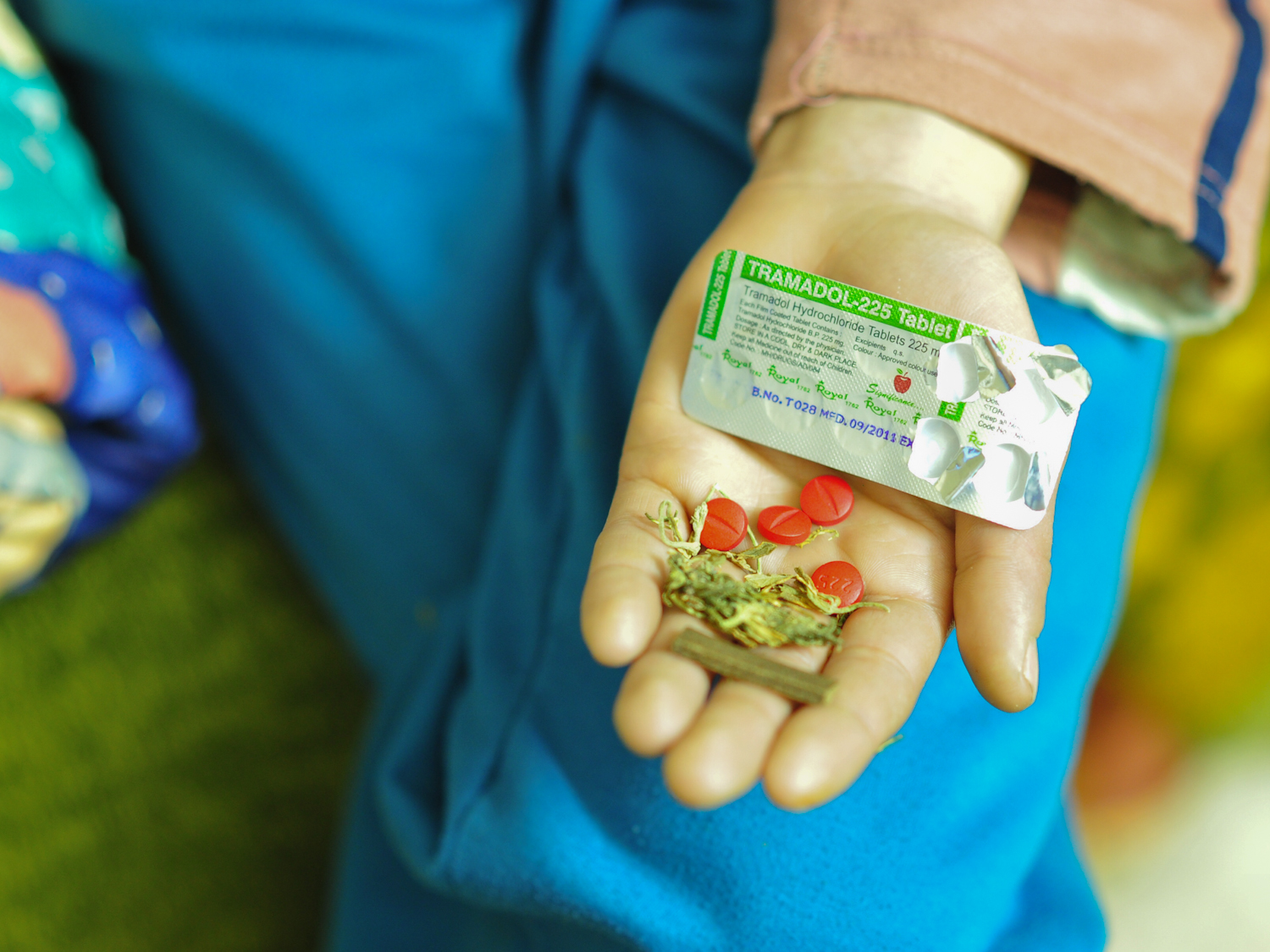
Aboul Maged said the danger of hashish is that not many people know that it can cause major addiction, so they use it, and also because it is cheap compared to other drugs such as heroine and cocaine, which are very expensive.
It is also different from many other drugs because it does not cause physical withdrawal symptoms. Thus, she said, many people believe they cannot become addicted to it.
“But it is [addictive], and even more dangerous than other drug substances thought of as much more toxic,” she said, adding that hashish addiction can cause major complications and develop mental illnesses such as schizophrenia and mood disorders.
Regarding addiction to pharmaceuticals, she said misuse of Tramadol and tranquilizers is common.
Tramadol, a common name in the streets in recent years, is a narcotic-like pain reliever that, with excessive use, can cause extreme alertness.
“It’s street name is ‘el farwala’ (‘the strawberry’), since it’s red,” Aboul Magd said. “It’s most common among bus and truck drivers that want to stay alert as long as possible.
“It increases sexual performance as well,” she added.
However, using the drug as a stimulant in this way ultimately has a reverse effect, she said, destroying the nervous system and changing the speed of time for the drug user, making time seem much slower than it is in reality.
As for women, the use of pharmaceutical tranquilizers, in addition to Tramadol, is common.
Problems Ahead
Abbasiya may be unique and historic but it still faces major issues both inside and out of the hospital.
Adel said there is still no new vision for development with steps that could be implemented in reality. The bureaucratic routine of how things need to be done makes any plan almost impossible to execute, she said.
There are not many doctors and the money is never satisfactory, she said. Financial support brings security and affiliation to a place, she said, and this is not happening at Abbasiya.

“The budget allocated by the Ministry (of Health) for the hospital is too low; that if there are certain guidelines and steps to be followed for treatments, that are known all over the world, we might fail to follow them fully due to lack of facilities,” Adel said.
Abdel Fattah agrees with Adel, adding that despite a full educational institution for nursing in Abbasiya, most graduates end up working in the asylum. She said nursing still needs more training and attention, both financially and educationally. Nurses do not receive the concern required in comparison to doctors, which reflects on them and consequently on patients.
Abdel Fattah explained that the field is tough, and not many are interested in joining it for a number of reasons, including the fact that dealing with patients is not easy and society’s perception of mental illness is not positive.
“Now it is a bit different,” she said. “Very recently it has become more acceptable for people to say they have a problem and for potential doctors to specialize in the field, but there is still much more to be done.”
Facing the World Outside
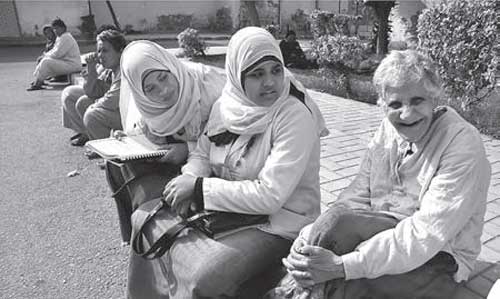
Abdel Geleel talked about the two kinds of patients entering the hospital: mandatory or voluntary. According to the laws of psychological health of the WHO, mandatory treatment is when the family brings a patient without his/her knowledge or acceptance, and voluntary patients check in of their own will.
“Unfortunately, many people still refuse to accept that a mentally ill patient is in the family; it’s like they have a criminal at home,” Abdel Geleel said.
Some patients refuse to leave the asylum because they find the outside world stressful, she said, “especially as not all families are aware of how to treat a psychological patient.” That many people forget about their relatives who are patients, and sometimes their own direct family in the asylum for decades, she said, sometimes for thirty or forty years.
They hide the fact that they have mentally ill relatives, said Abdel Geleel.
“The problem is in qualifying patients for being part of the society, especially when their cases are chronic and they will always have the illness. Some families fail to answer the needs of the patients, or are lazy to do so, and what happens is they leave them in institutions permanently sometimes; or they keep returning them after they’re out,” said Hossam Hassan, public relations manager of the National Council for Mental Health.
Patients who have been in the hospital for decades, whose families abandoned them and considered the asylum as a sort of home for the elderly for them or who believe their illness is a disgrace because of society’s perception, often relapse after leaving the hospital, Adel said. They cannot cope with the outside world.
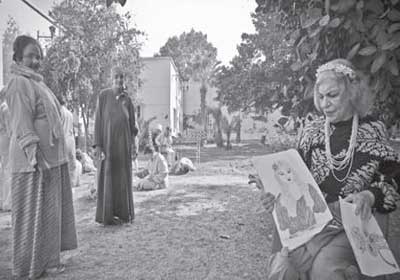
“Unlike patients of any other illnesses, they remain held in hospitals not because they are still ill, but because the society and their families refuse to accept them,” Adel added.
This frustrates not only the patients, also their doctors. “Why are we treating these patients, if they won’t be able to come out as healthy individuals in the society?” Adel asked.
“It is a very vicious circle,” she said.
Abdel Geleel explained that, unfortunately, even people who care about charity have forgotten about this place. Nobody visits the patients. Many visit orphanages and regular hospitals, but when it comes to a place like Abbasiya, they are always either afraid or do not care.
The mentally ill in Abbasiya mental hospital and asylum have been both tortured mentally, and abandoned by their families and by society. Instead of deserved proper care and acceptance, they remain in their own Hotel California where they check in, but never leave.
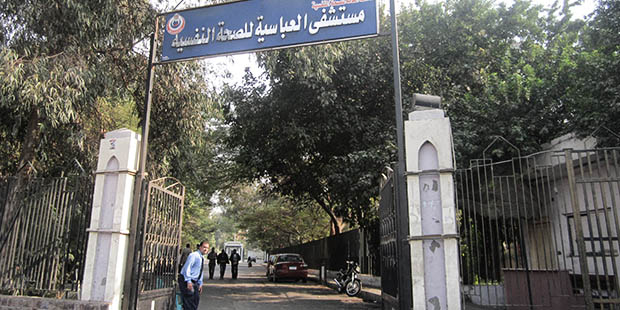




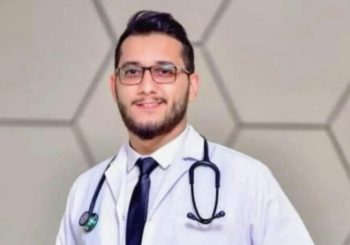
Comments (8)
Stigmatising Mental Ill-health is a world wide issue, with different intensity in different countries. Still, as stated in the first paragraph of this article, Egypt is an ancient civilisation that should lead in de-stigmatising the mentally unwell.
Mustapha Tahir.
02.06.2014
stereotype !!!